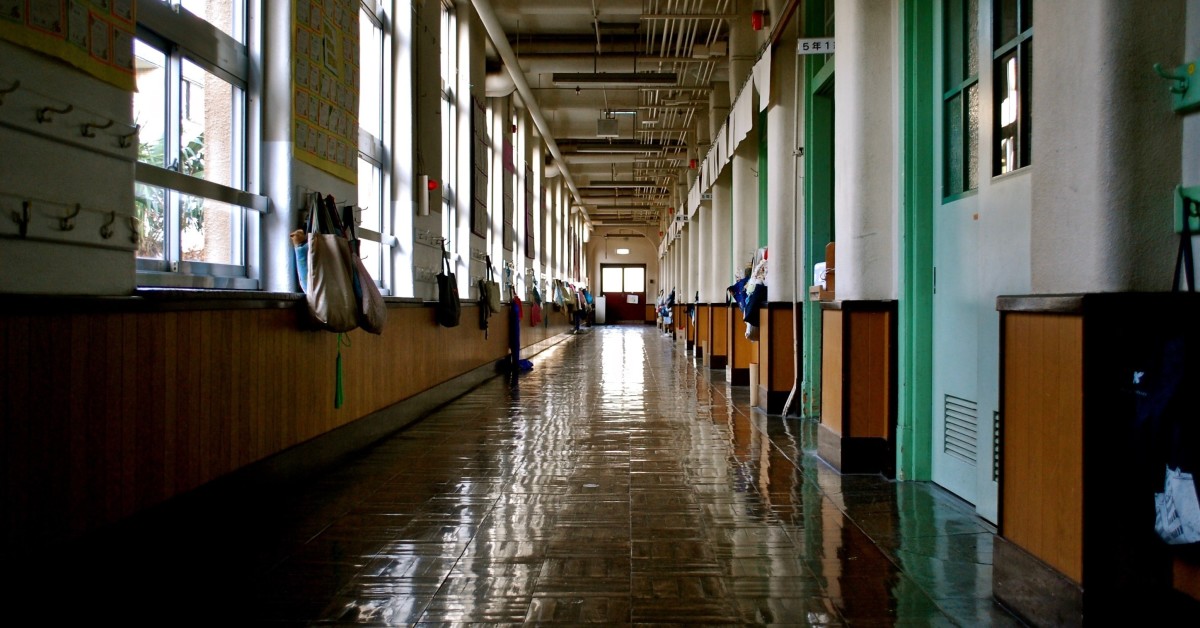![NASW’s 16 Social Work Specializations Explore the diverse world of social work specializations with the NASW’s comprehensive list of 16 practice areas. From administration and advocacy to healthcare and mental health, this guide highlights the unique roles and responsibilities within each specialization. Whether you’re passionate about working with children, the elderly, or focusing on policy […]](https://resources.noodle.com/wp-content/uploads/2024/03/pexels-pavel-danilyuk-8205206.jpg)
Different Types of Social Workers
NASW's 16 Social Work Specializations Explore the [...]

Educational psychology is the study of how people learn, both in and out of the classroom. Most people think of learning as a purely cognitive process, but there are social, behavioral, and emotional elements of learning, too. Many factors affect how we learn, ranging from our environments to the people around us to the state of our mental health.
Consequently, educational psychology is a highly complex discipline with a wide variety of foci. Some students of educational psychology study therapeutic and clinical interventions. Others focus on cognitive theories and research, education evaluation, learning disabilities and special needs in education, literacy and language acquisition, or educational policy. And while many master’s-level educational psychology programs are focused on learning in childhood and adolescence, it’s possible to find programs designed for educators who want to work with adult learners.
The most important thing to consider when you’re trying to decide whether a master’s in educational psychology is worth it is that there is no one master’s in educational psychology degree. Psych. ed. programs grant MS, MA, and MEd degrees and may be offered by various departments at different colleges and universities. Some programs include more coursework in learning, teaching, and assessment, while others prioritize psychology. Your interests, career aspirations, and tolerance for research should be front-of-mind as you explore the ins and outs of this degree path.
In this article about whether a master’s in educational psychology is worth it, we’ll cover:
Given the diversity of educational psychology as a discipline, it should come as no surprise that a heterogeneous population of students pursues this degree. Some educational psychology graduate students are teachers who want to develop a stronger foundation in cognitive theory to call upon when working with students. Others are aspiring school psychologists or school counselors.
Still, others pursue this degree because they want to build a career researching how and why people learn, or they want to help school districts develop better strategies for teaching low-income, minority, gifted, or special needs students.
Many students in educational psychology master’s degree programs eventually earn doctoral degrees in educational psychology or related disciplines like educational evaluation and early childhood education.
| University and Program Name | Learn More |
|
Merrimack College:
Master of Science in Clinical Mental Health Counseling
|
|
|
Merrimack College:
Master of Education in Teacher Education
|
|
|
American University:
Masters in Education Policy and Leadership
|
With a master’s in educational psychology, you’ll be qualified to work in the public school system, some colleges and universities, counseling practices, government and community agencies, and other settings where people learn or where learning is studied. Some careers for people with a master’s in educational psychology include:
Not to be confused with school counselors, school psychologists work with students who have the most severe mental health, behavioral, and emotional issues. They may also collaborate with teachers and administrators to:
You can find out more about the licensing requirements for school psychologists here. US News & World Report indicates that school psychologists earn a median salary of $76,990 per year.
School counselors also work directly with students and collaborate with teachers and administrators, but the support they offer is less rooted in psychology and learning theory. They help students deal with stress, social difficulties, and challenges at home. To become a school counselor, you will likely need a school counseling license, or you will need to meet other licensing requirements.
Glassdoor reports that school counselors earn an average annual base income of $45,557, plus an additional $3,000 to $8,500 in incentive compensation.
These professionals don’t work with students directly, but rather with education administrators and teachers. Their job is to develop and assess school-wide and district-wide policies that impact not only how well students are learning but also their mental health and emotional well-being. According to Payscale.com, educational psychologists earn an average annual salary of $72,080.
In this role, you will evaluate materials, curricula, and teaching strategies designed for children with developmental, behavioral, or social difficulties; gifted students; or conventional learners.
These professionals conduct research to gain a deeper understanding of how children and adults from different backgrounds find, understand, communicate, and use information in different environments. Your work in this role will help shape the future of education.
You will also be qualified to become a/an:
On the other hand, you can also build a rewarding career in the classroom with this master’s degree. Having this master’s degree may lead to improved outcomes in your classes by giving you the tools to help students dealing with mental health issues, emotional problems, behavioral issues, or learning differences.
Master of education psychology programs teach students fundamental concepts of psychology in the context of education. Some programs focus more on psychology and cognition, while others focus more on learning and educational theory. Coursework typically covers:
In an educational psychology program, you may take classes like:
Most programs require students to complete a set number of fieldwork and internship hours in a school or clinical setting. If you plan to become a school psychologist or school counselor, choose a program that includes not only a capstone research project but also a practicum component.
Depending on which program you choose, you may have the option of specializing in areas like:
Some programs also prepare students to earn a state teaching certification. If your goal is to teach, make sure you’re looking specifically at master’s degree programs that will help you meet licensing requirements.
Also, be aware that some educational psychology programs are designed primarily for learners who want to become school psychologists and work with students in a clinical capacity. Others are targeted to teachers who wish to continue working in the classroom, or to educators who want to become educational psychologists. Whether a program is offered by a university’s college of education or college of psychology can give you some insight into a program’s focus. Regardless, you should read program guides and course lists carefully when deciding whether a master’s in educational psychology is the right degree for you.
As with most master’s degree programs, educational psychology programs typically take two years to complete for full-time students and four or more years to complete for part-time students. Many students in educational psychology master’s degree programs are working as teachers or in other roles in education, which is why schools offer options to study educational psychology online and part-time.
There are also some accelerated degree options, which may be worth pursuing if you want to get to work faster. Touro University Worldwide offers a one-year online MA in Psychology with an Educational Psychology concentration. Ball State University has an MA in Educational Psychology program that can be completed in less than a year by full-time students who take summer classes. And the University of Northern Colorado has a combined BA/MA program that grants students a bachelor’s degree in psychology and a Master of Arts in Educational Psychology in just five years total.
Excellent schools for students who want to earn a master’s in educational psychology include:
One thing you probably noticed is that naming conventions at different colleges and universities can vary significantly when it comes to master’s in literacy in language programs. It’s never a good idea to rely on degree names when you’re researching programs. The MS in Educational Psychology program at one school can be nearly identical to the MA in School Psychology at another, while two MEd in Educational Psychology programs at different schools can be completely different in focus.
Getting a degree from a prestigious school can definitely improve your future job prospects. That said, you probably shouldn’t take out an overwhelming student loan or uproot your life just to get your degree from an institution with a famous name. The best degree for you will always be the one that speaks to your interests and aspirations and doesn’t destroy your financial future.
Don’t assume that one of the pros of getting a master’s in educational psychology will be a fat paycheck. While research by the Center for American Progress suggests that teachers with master’s degrees make anywhere from $1,400 to $10,000 more per year, education jobs aren’t usually big moneymakers.
The big pros you should keep in mind when considering whether a master’s degree in educational psychology is worth it are:
The biggest cons are the cost of getting a master’s degree, and the time you’ll need to devote to studying. Graduate school can be expensive, and spending a lot for an advanced degree isn’t always worth the cost. It may not be worth the time investment, either. There’s nothing wrong with learning for learning’s sake, but it’s a good idea to weigh the costs and benefits of any degree in the context of your professional goals.
Are you looking for job security? Jobs for psychologists (a broad category that includes school psychologists) and jobs for school counselors are both growing at rates faster than the average for all industries, so this degree may boost your employability. Do you want to work with student populations with specific learning challenges or those who need the most help? This degree will definitely help you do that. Have you ever dreamed of improving educational methodologies using science? If so, you’ll probably get a lot out of this degree.
However, if you’re a teacher and you want to continue teaching for the foreseeable future, this degree might not be worth it. Not because it’s not a valuable degree, but because there are so many concentrations and specialization options for students in education graduate programs. Unless you’re passionate about cognitive theory, chances are you’ll get more out of a MAT or MEd degree that’s focused on best practices in teaching or educational administration.
(Updated on July 17, 2024)
Questions or feedback? Email editor@noodle.com
![NASW’s 16 Social Work Specializations Explore the diverse world of social work specializations with the NASW’s comprehensive list of 16 practice areas. From administration and advocacy to healthcare and mental health, this guide highlights the unique roles and responsibilities within each specialization. Whether you’re passionate about working with children, the elderly, or focusing on policy […]](https://resources.noodle.com/wp-content/uploads/2024/03/pexels-pavel-danilyuk-8205206.jpg)
NASW's 16 Social Work Specializations Explore the [...]
![Entering the world of nursing education brings with it a host of unique challenges and experiences. It’s a pursuit not limited by gender nor a less rigorous path compared to other medical fields. As a future healthcare professional, you must be prepared for demanding coursework and a curriculum that extends beyond technical skills to include […]](https://resources.noodle.com/wp-content/uploads/2024/03/pexels-ludovic-delot-16420237.jpg)
Entering the world of nursing education brings with it a [...]

Genetic counseling is a career that combines science and sensitivity,especially [...]

Guidance counselor salaries vary widely among states. Remember to factor [...]

Organizational behavior has developed numerous models for the workplace. The [...]
Categorized as: Educational Leadership & Policy, Psychology, Education & Teaching